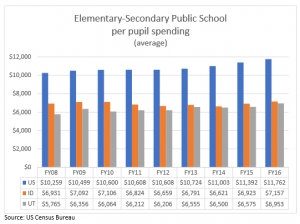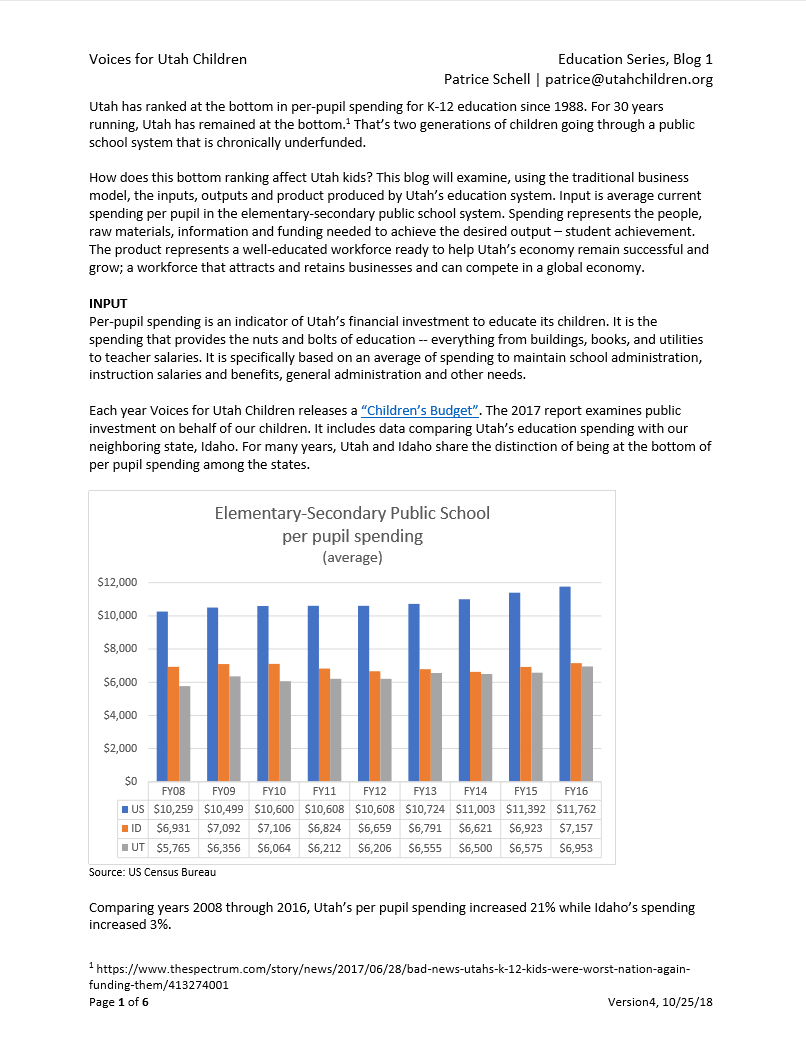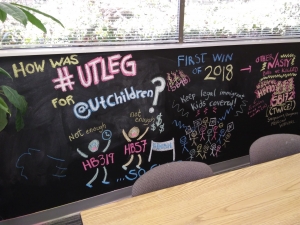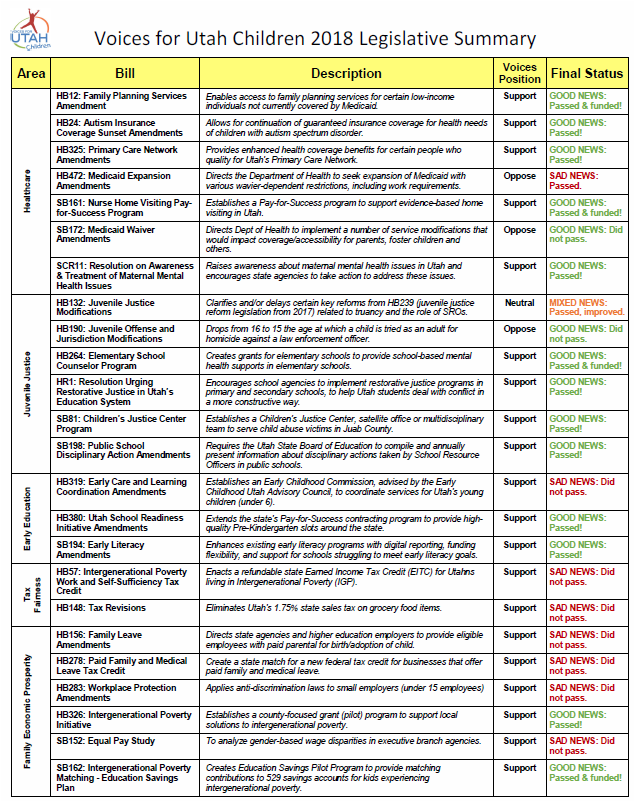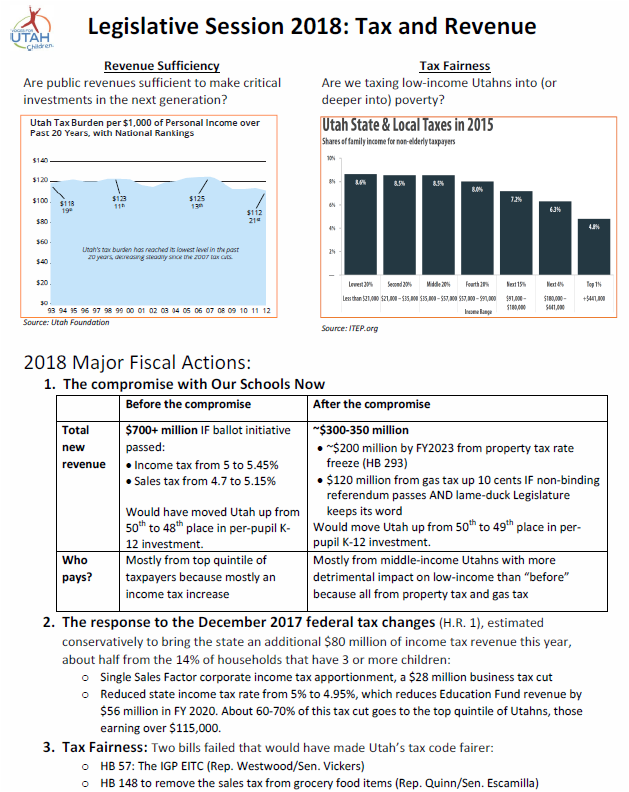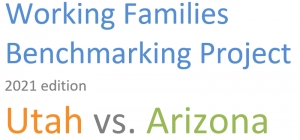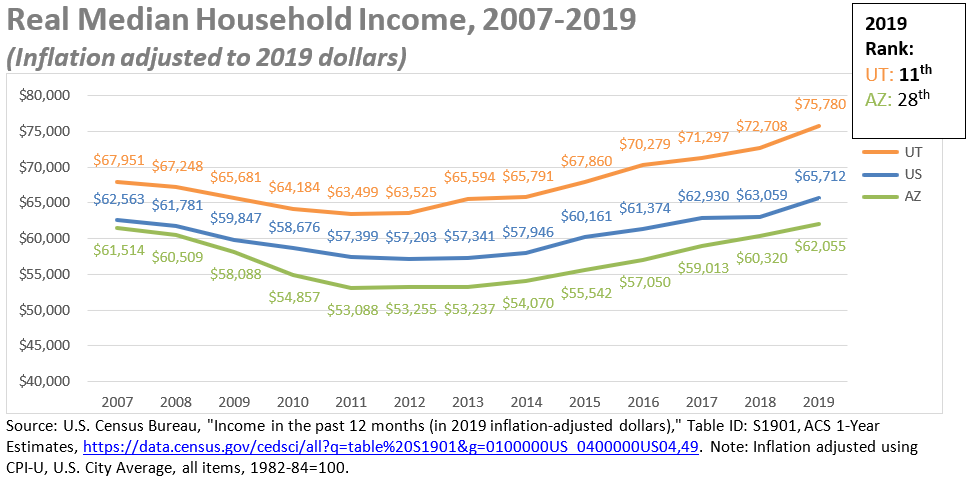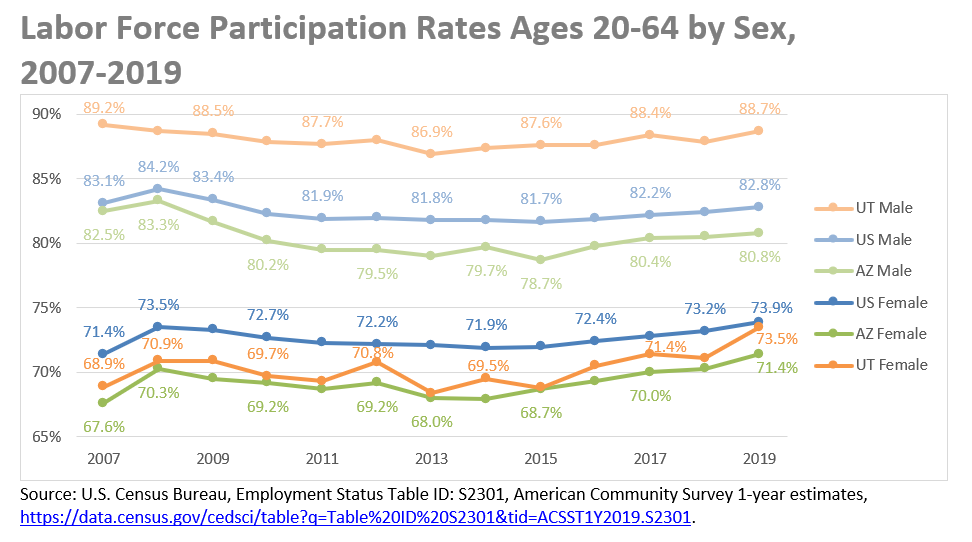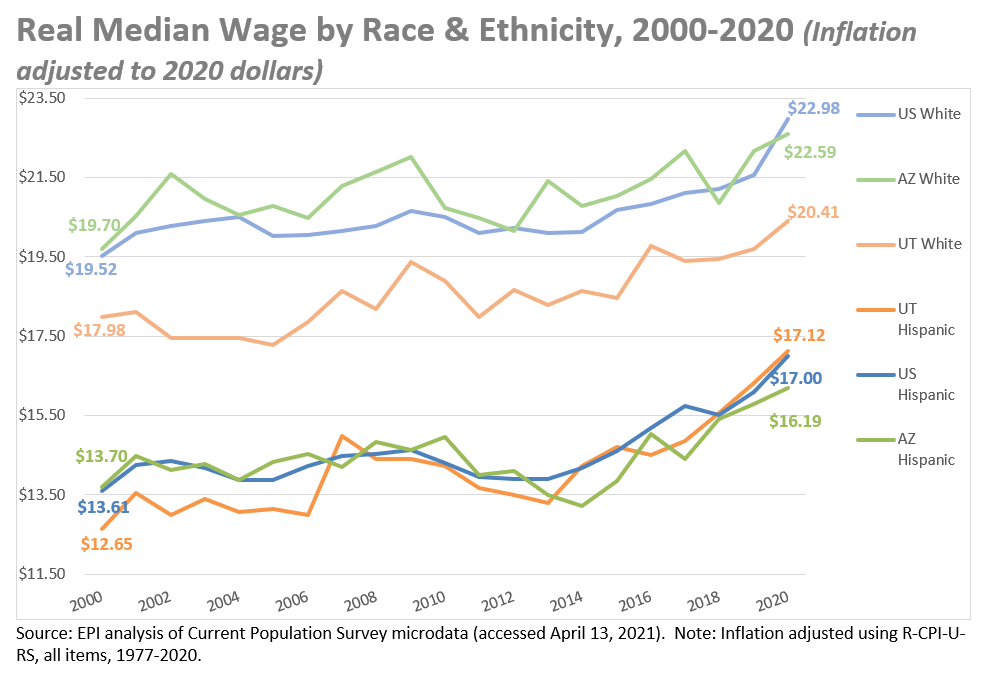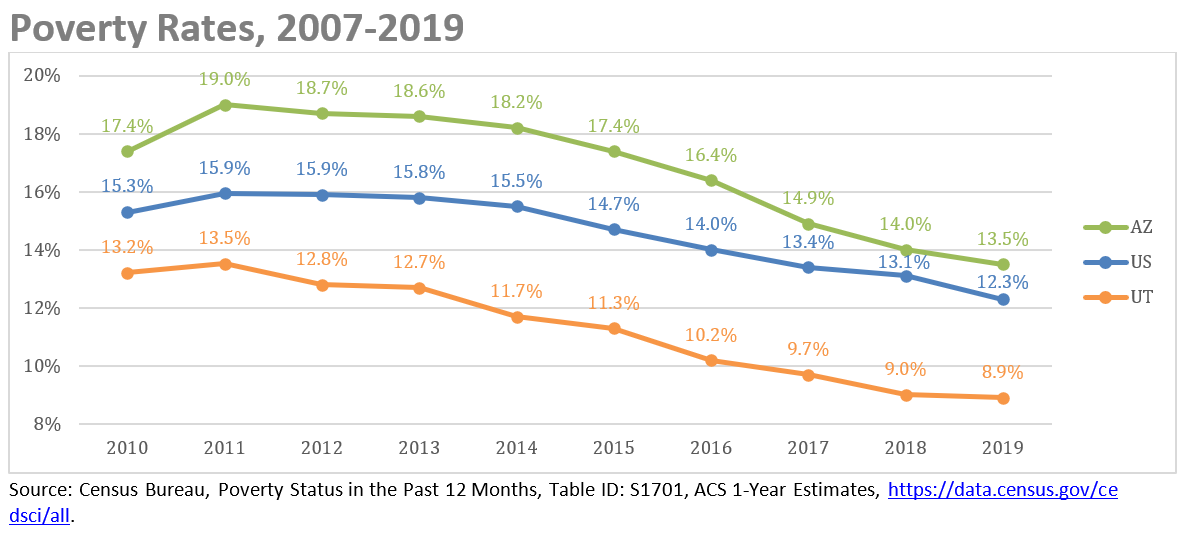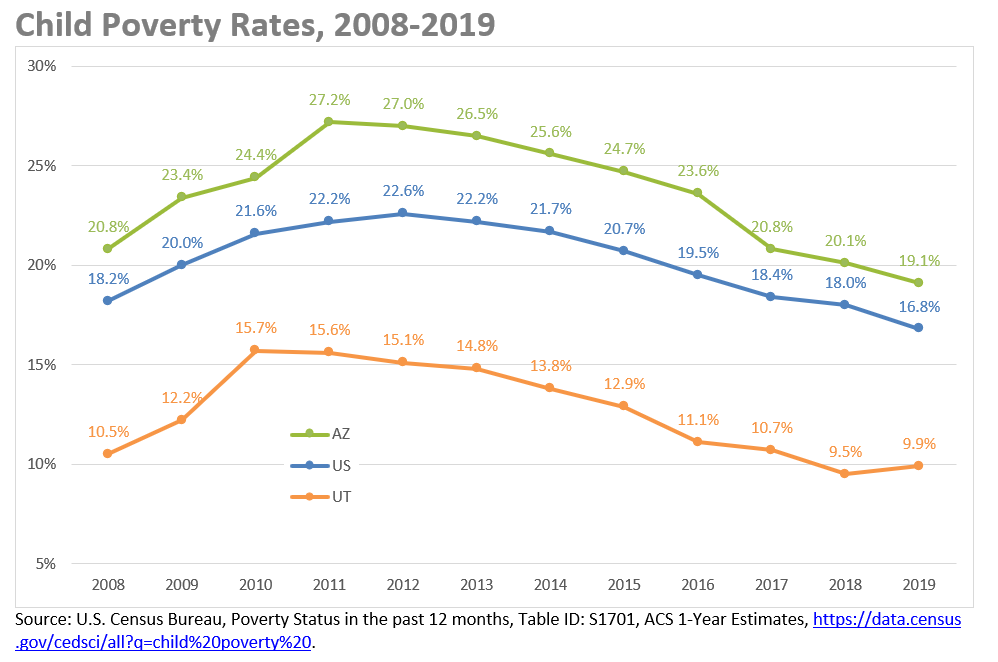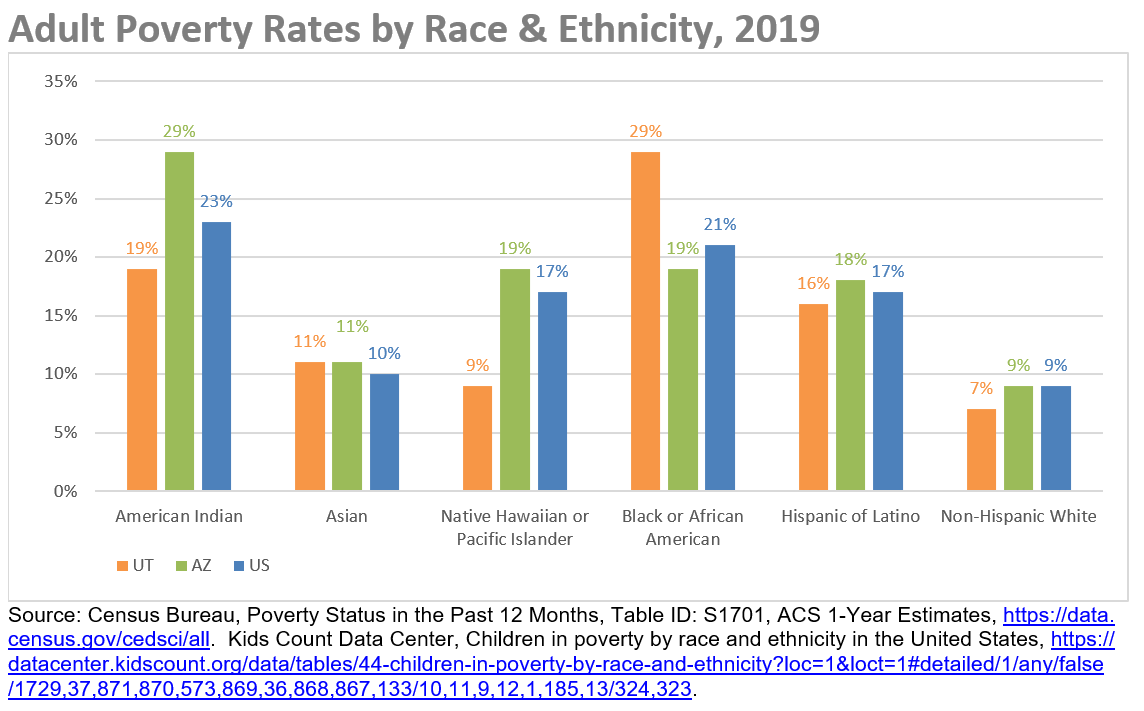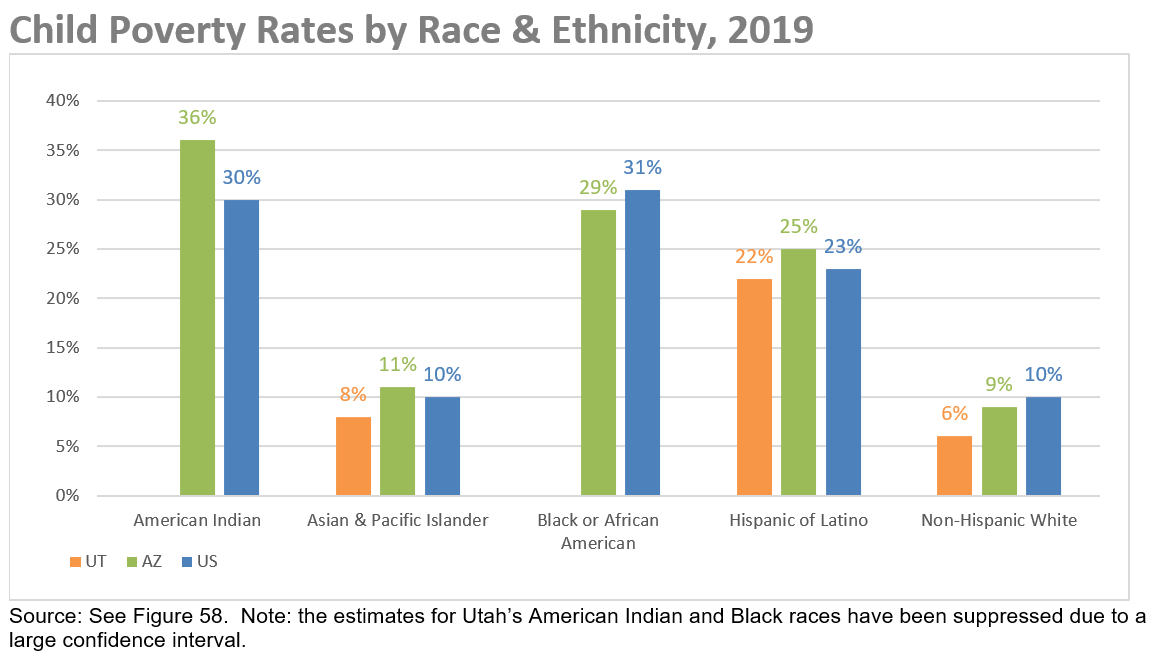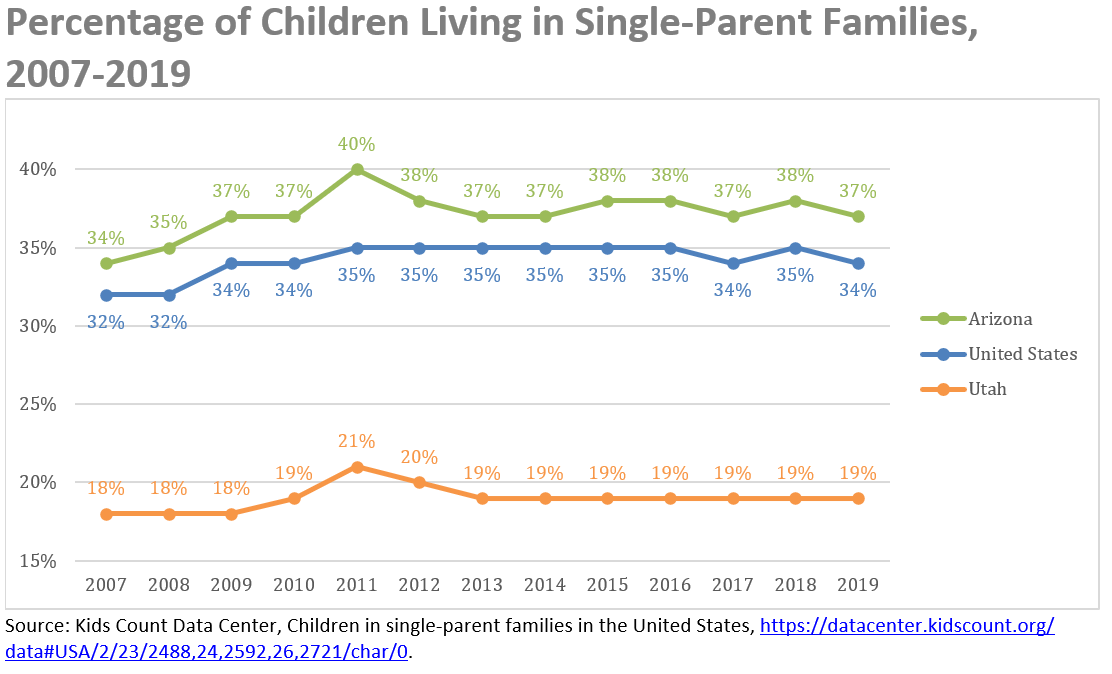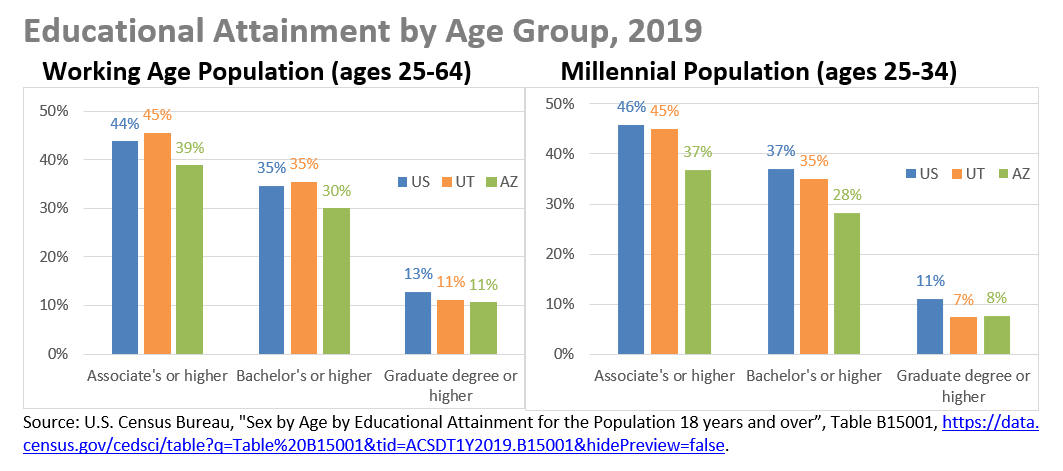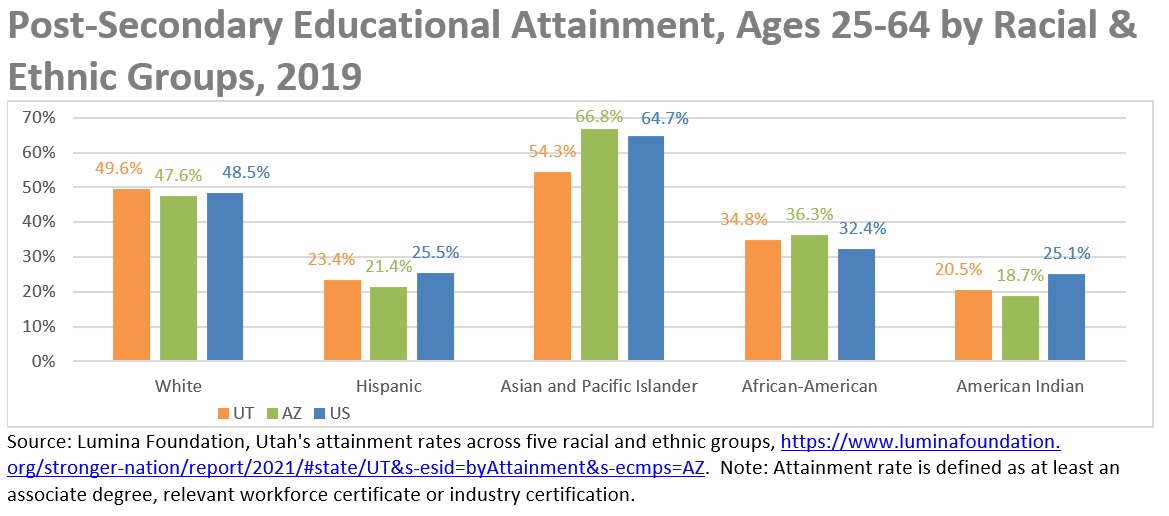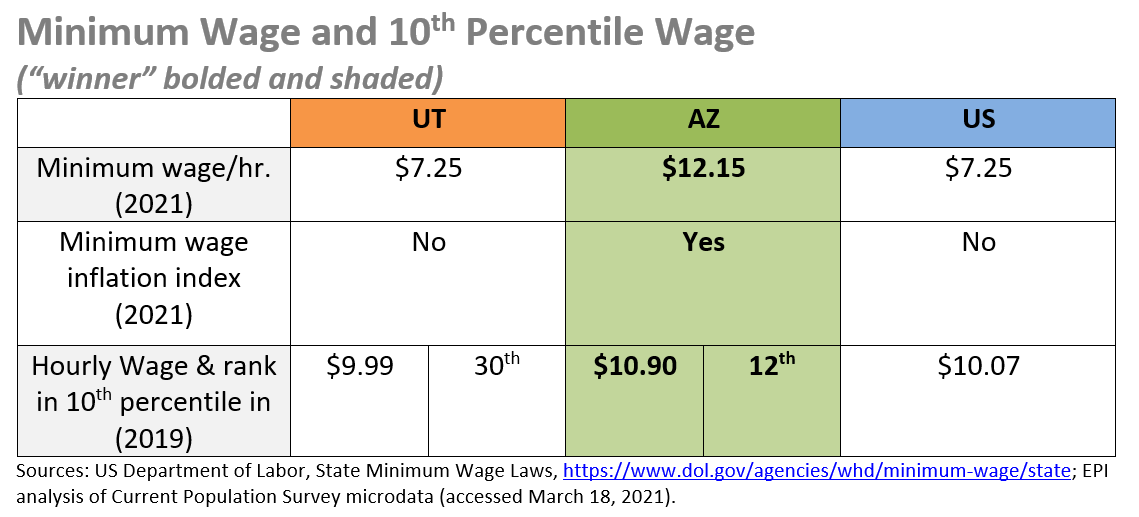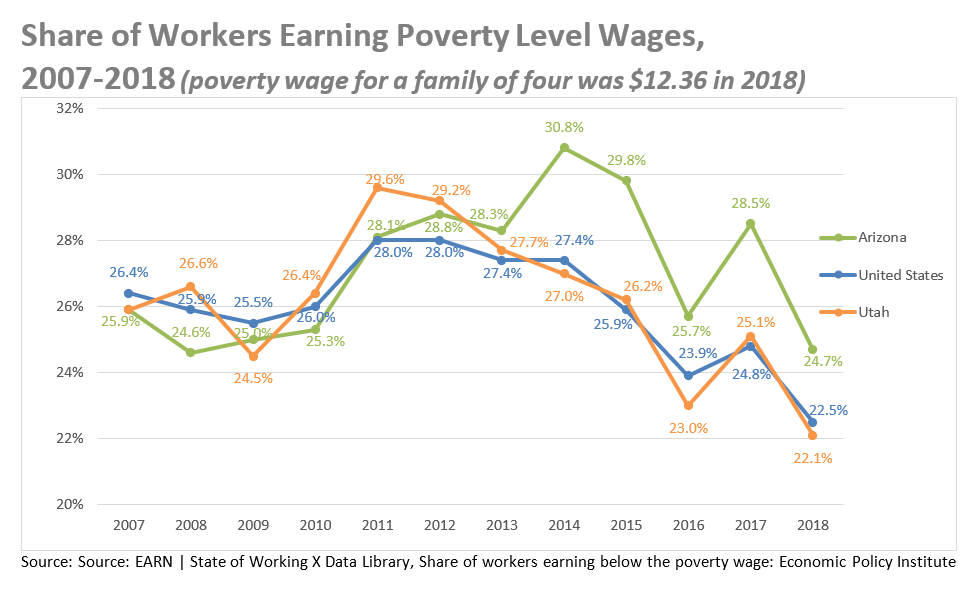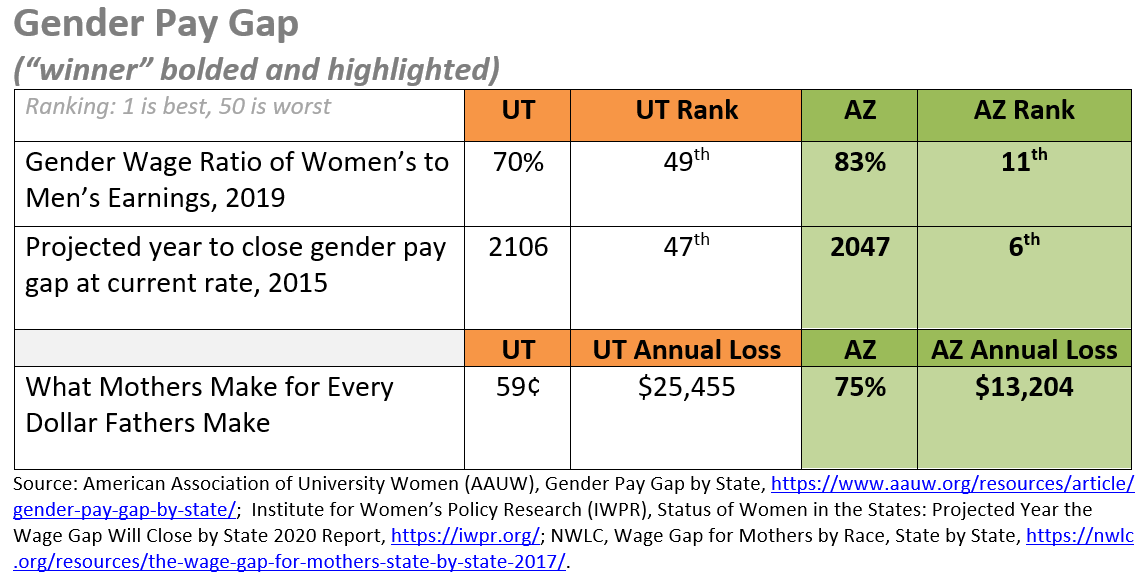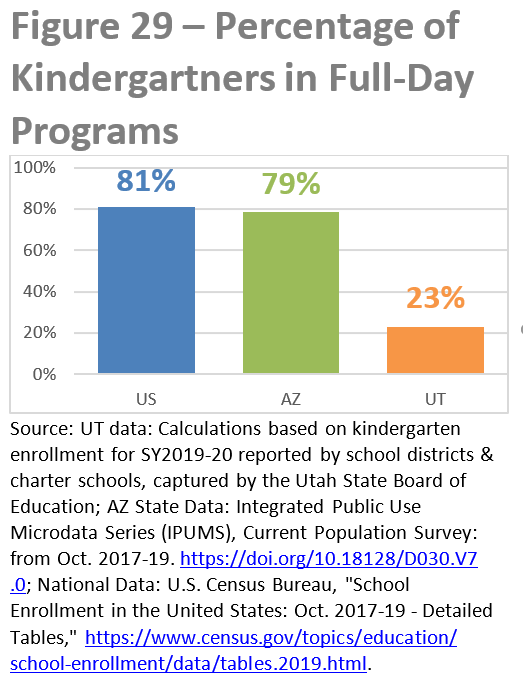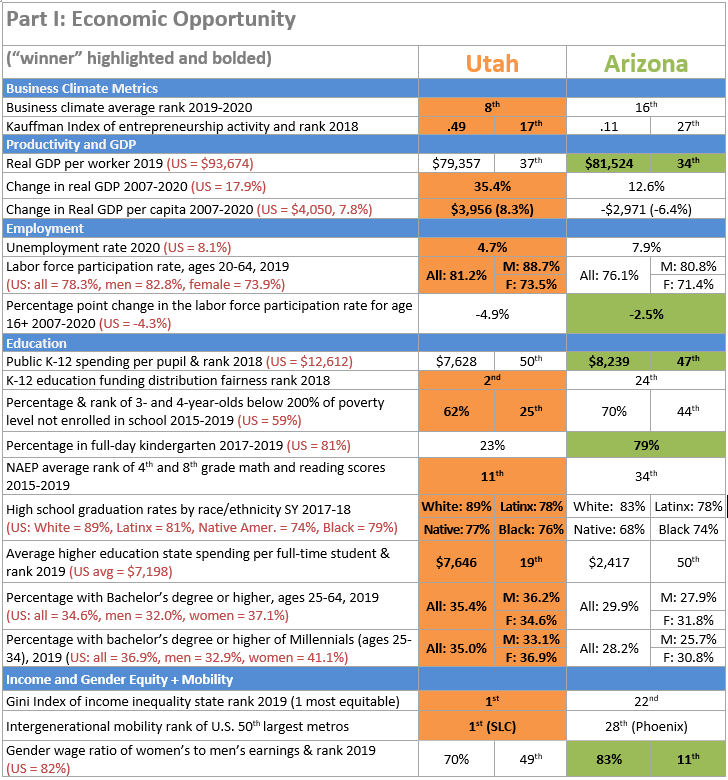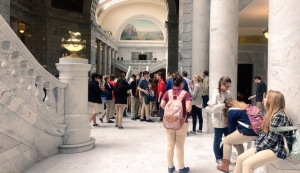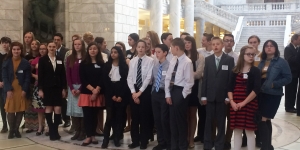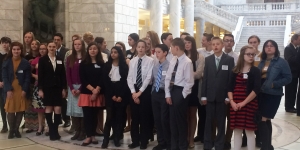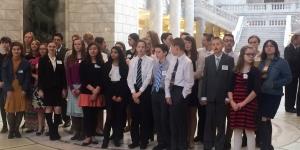Education
Utah Education – 30 years at the bottom
As has been pointed out to me recently, I have worked off and on for Voices for Utah Children in each decade of its existence. I have had the privilege to be associated with the organization in some way for almost 30 years! It is amazing how Utah takes one step forward and later two steps back. We continue to fight on behalf of families and children to access health care, child care, economic stability and the perennial favorite, quality K through 12th grade education.
No matter political affiliation, education is on the minds of Utah’s families and politicians. In November, voters will make a decision on ballot Question 1, a non-binding resolution “suggesting” legislators raise gas taxes by 10 cents per gallon to add much needed dollars to Utah’s chronically underfunded education system.
Why, one has to ask, doesn’t Utah just bite the bullet and make a long term commitment to adequately and consistently invest in education? Over the next several months we will blog in depth about Utah’s public education system looking at educational achievement and its relationship to spending, teacher salaries, teacher recruitment and retention, the difference between education spending and funding, and the infrastructure supporting Utah’s public school education system.
Maybe all or part of the question can be answered by this blog – or at least dispel some myths and add a few new facts. Voices goal in this discussion is for Utah’s children to grow up healthy and educated, ready and able to compete in a global economy. And who can argue with that?
2018 Utah Legislative Update
The 2018 Legislative Session is over. Voices for Utah Children worked tirelessly to advocate for Utah’s children and families, and we had some great wins and some painful losses. Nonetheless, Utah children and families are in a better place now than they were in January.
Health
WIN: HB12 Family Planning Services Amendments (Rep. Ward)
- This legislation was championed by a number of Voices allies (YWCA, Utah Women’s Coalition, ACLU, and Planned Parenthood) to provide family planning services to low-income individuals through Medicaid
WIN: HB325 Primary Care Network Amendments (Rep. Eliason)
- This bill will direct the Department of Health to get a waiver to expand current PCN services for adults receiving coverage from the state.
DEFEATED: SB48 Medicaid Waiting Period Amendments (Sen. Christensen)
- This legislation would have re-imposed a five-year waiting period on legal immigrant children before they could enroll in health coverage. Our advocacy work helped ensure this bill never got heard
DEFEATED: SB 172 Medicaid Waiver (Sen. Hemmert)
- This bill would have done away with Medicaid’s children’s health benefit and EPSDT. This would have caused 2,600 parents and former foster youth to lose their health coverage. Voices defeated it in the House Health and Human Services Committee and again in the House Revenue and Taxation Committee.
LOSS: Keeping Kids Covered – 12-month continuous eligibility on Medicaid
- Rep. Ward appropriation requested wasn’t prioritized high enough to receive funding this year.
LOSS: Dental hygiene check-ups for kids in public education settings
- Dental Code for use by dental professionals providing hygiene check-ups for kids in public education settings - did not get prioritized high enough to be funded for this year - but we’ve strengthened our relationship with a huge association of highly motivated dental hygienists!
LOSS: HB472 Medicaid Expansion Revisions (Rep. Spendlove)
- HB472 seeks a waiver, that is highly unlikely Utah will receive from the Trump Administration. This waiver would provide Medicaid benefits to eligible individuals below 95% of the federal poverty level.
The Utah Decides Ballot Initiative is now our last hope to get Medicaid expansion done in 2018.
Early Childhood
LOSS - HB319 Early Care and Learning Coordination Amendments (Rep. Chavez-Houck)
- A priority bill to form an Early Childhood Commission for better governance and coordination among agencies offering services to Utah’s youngest kids (0 to 5).
WIN - HB380 Utah School Readiness Initiative Amendments – (Rep. Last)
- With a close collaboration with United Way of Salt Lake, this bill will continue the school readiness program, Pay-for-Success. Since 2014 this has provided thousands of at-risk kids in Salt Lake county with high-quality pre-school.
WIN - SCR11 Concurrent Resolution on Awareness and Treatment of Maternal Depression and Anxiety (Sen. Zehnder)
- With the efforts of the Maternal Mental Health Coalition, this resolution energized and inspired story-sharing and education on maternal mental health.
WIN: SB161 Nurse Home Visiting Pay-for-Success Program (Sen. Escamilla)
- This legislation will fully fund the Nurse Family Partnership by putting it forward as a Pay-for-Success Program.
Juvenile Justice
WIN: HR1 House Resolution Urging Restorative Justice in Utah’s Education System – (Rep. Sandra Hollins)
- Resolution to encourage the use of restorative justice practices in Utah schools
NOT A WIN BUT NOT A LOSS: HB132 Juvenile Justice Modifications (Rep. Snow)
- Updates to last year’s big juvenile justice reform effort - we fought hard with our allies (ACLU, Libertas Institute, YWCA, Racially Just Utah) to keep the changes to a minimum. This bill gives school a limited amount of time to update their programs to comply with HB239 from 2017.
WIN: SB198 – Public School Disciplinary Action Amendments (Sen. Anderegg)
- This legislation requires the Board of Education to produce an annual report looking at law enforcement and disciplinary action in schools. This data will be helpful as we work to reduce racial disparities in school discipline and work to build a system that produces better outcomes for all kids.
Tax and Budget
NOT QUITE A WIN BUT OH SO CLOSE: HB57 Utah Intergenerational Poverty Work and Self-sufficiency Tax Credit (Rep. Westwood/Sen. Vickers)
- This bill would have created a $6 million Earned Income Tax Credit (EITC) for 25,000 working families identified as being in the Intergenerational Poverty (IGP) cohort by the state Department of Workforce Services. These families, which pay tens of millions of dollars in state and local taxes every year, would have been able to keep more of what they earn with a tax credit averaging $240 (and up to $600 maximum). This legislation received unanimous support in both House and Senate committees, passed the House, and received a 22-4 vote on 2nd reading in the Senate. But on the final day of the session, leadership decided to leave it out of the final tax package.
NOT QUITE A WIN BUT COULD HAVE BEEN A LOSS --SCHOOL FUNDING
- The most notable fiscal outcome of the 2018 Legislative Session was a deal between legislative leadership and education funding advocates. The compromise deal included two big choices:
- Investing up to about $350 million in new education funding dollars – which should move Utah up one position in the national rankings for per-pupil K-12 funding, from 50th place to 49th if it is fully implemented.
- Shifting who pays these new dollars in a way that unfortunately more negatively impacts poor and middle class families. The Our Schools Now initiative proposal that was set aside in favor of this compromise would have raised over $700 million mostly from an income tax increase paid by the top 20% of Utahn (those who earn over $115,000). The compromise shifted these funds to come from more regressive gas and property tax increases.
LOSS: HB 148: House Bill 148 Tax Revisions- Sales Tax on Food (Rep. Quinn)
- Sought to eliminate the state sales tax on grocery food items (currently 1.75%) and make up for the $88 million in lost revenue by slightly increasing the general state sales tax rate from 4.7 to 4.92%. One underappreciated benefit of this tax change would have been to shift 20% of the $88 million, or $17.6 million, off of state residents and onto tourists and out-of-state residents who purchase Utah exports. The bill passed the House but was killed by the Senate Revenue and Taxation Committee.
WIN: Two Significant Intergenerational Poverty (IGP) bills
- HB 326 Intergenerational Poverty Initiative (Rep. Redd) establishes a one-time $1 million grant program for local IGP initiatives.
- SB 162 Intergenerational Poverty Matching – Education Savings Plan (Sen. Vickers) establishes a $100,000 matching grant program for IGP families that invest in a Utah Educational Savings Plan for their children's post-secondary education.
New Economic Benchmarking Report Finds Utah Ahead of Arizona in Most Key Metrics of Economic Opportunity and Standard of Living
Salt Lake City, May 6, 2021 - Voices for Utah Children released today the fourth in its series of ![]() economic benchmarking reports that evaluate how the Utah economy is experienced by median- and lower-income families by benchmarking Utah against another state. This year's report, authored by Taylor Throne and Matthew Weinstein with support from interns from the University of Utah Department of Economics, compares Utah to its southern neighbor, Arizona. Utah and Arizona have a nearly identical proportion of working age adults (18 to 64 years), increasingly diverse populations, and ready access to outdoor recreational opportunities here in the American Southwest. The findings in this year's report shed light on some of Utah's greatest strengths as well as where we can continue to improve.
economic benchmarking reports that evaluate how the Utah economy is experienced by median- and lower-income families by benchmarking Utah against another state. This year's report, authored by Taylor Throne and Matthew Weinstein with support from interns from the University of Utah Department of Economics, compares Utah to its southern neighbor, Arizona. Utah and Arizona have a nearly identical proportion of working age adults (18 to 64 years), increasingly diverse populations, and ready access to outdoor recreational opportunities here in the American Southwest. The findings in this year's report shed light on some of Utah's greatest strengths as well as where we can continue to improve.
Voices for Utah Children's State Priorities Partnership Director Matthew Weinstein commented, "The main takeaways from this report and the others in the series are that Utah's economic successes put us in a position to make the new upfront investments we need to make now -- in education, public health, poverty prevention, and closing majority-minority gaps -- so that we can achieve our true potential and follow in the footsteps of states like Colorado and Minnesota that have become high-wage states and achieved a higher standard of living, and do it in such a way that all our children can have a better future."
The report release presentation took place online and can be viewed at https://fb.watch/5jZBVxpKOY/ . The presenters included both Taylor Throne and Matthew Weinstein as well as a special guest, David Lujan, Director of the Arizona Center for Economic Progress, to share the Arizona perspective on the report.
Utah's Top Economic Advantages: Hard Work & Strong Families Allow Utah to Enjoy High Household Incomes and Low Poverty
Utah enjoys a higher real median household income than Arizona, ranking #11 nationally, although there are significant gaps between the median wage of different racial and ethnic groups. Utah's higher incomes are due largely to our high labor force participation rates and our preponderance of two-worker (often two-parent) households.
Utah Has Lower Poverty Rates Overall But Still Suffers from Large Racial/Ethnic Gaps
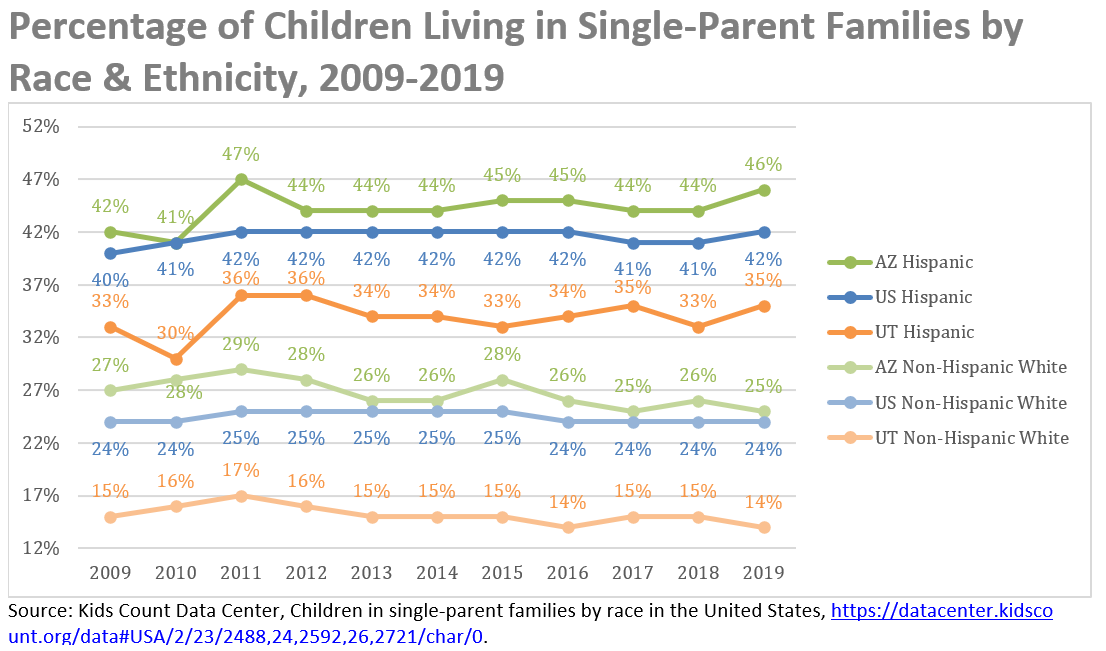
Educational Attainment: Utah Ahead of Arizona But Falling Behind the Nation
The charts below from our latest benchmarking report compare Utah, Arizona and the nation as a whole on educational attainment. Historically Utah was well ahead of the nation, but more recently evidence has mounted that the younger generation of Utahns is not keeping up with the nation's gains at the level of higher education. Moreover, there are stark racial/ethnic gaps in both states and the nation as a whole.
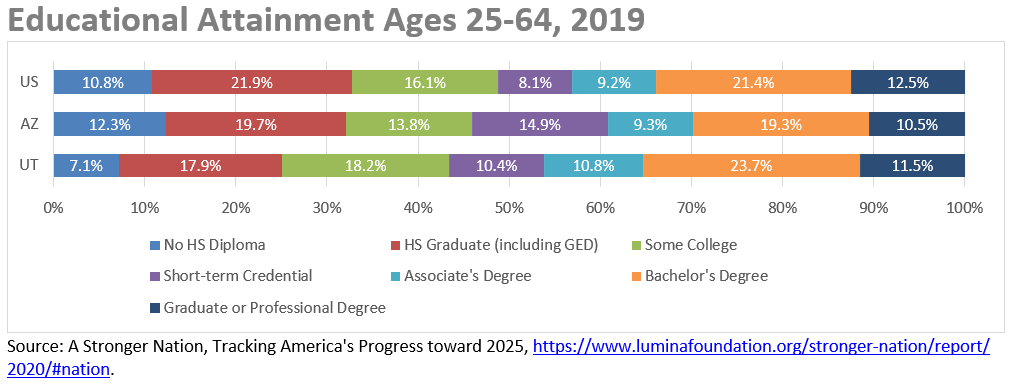
Utah's high school graduation rates are at or below national averages for most racial/ethnic categories, including our two largest groups, Whites and Latinos.
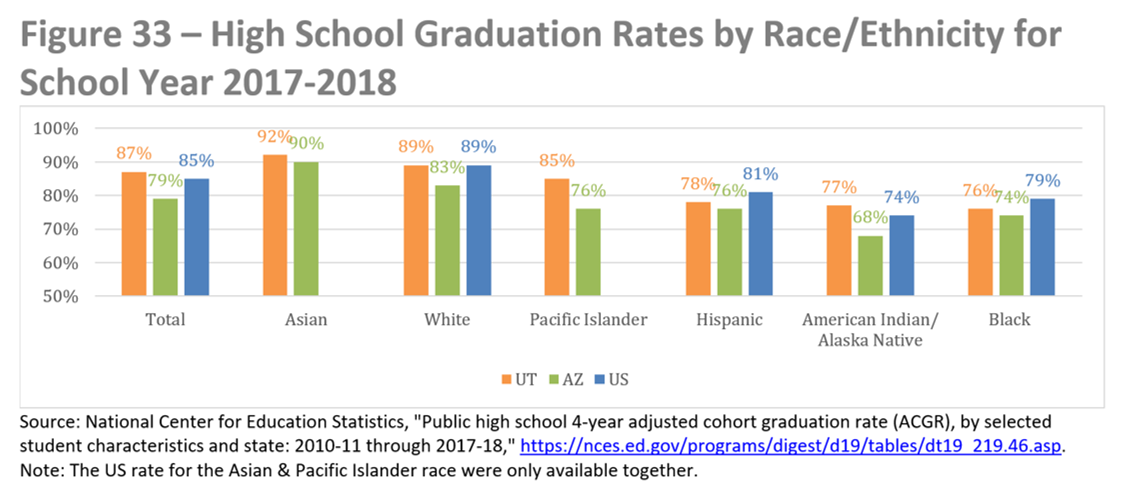
We're also very concerned that Utah's gap between high school graduation rates for Whites and Latinos is larger than nationally.
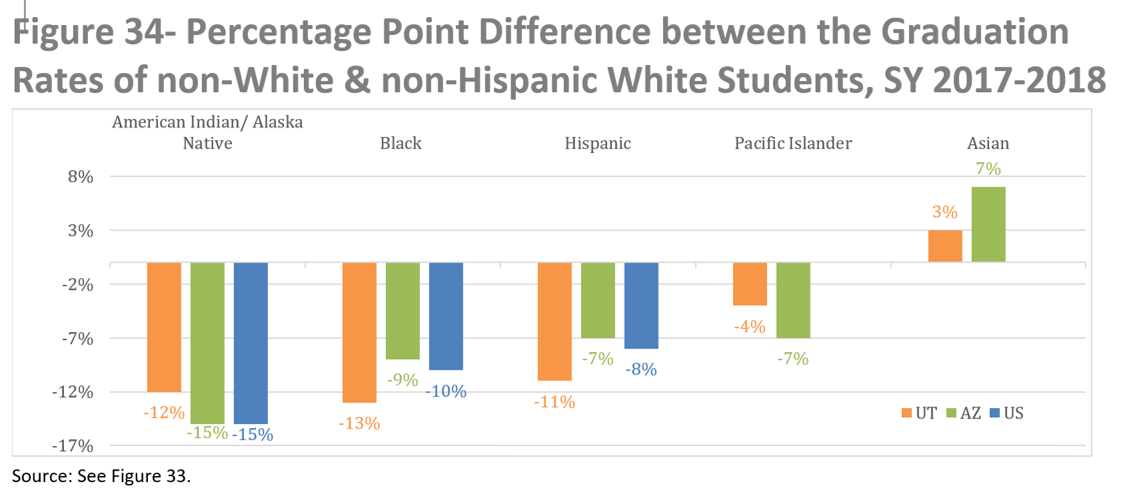
The chart below illustrates the way that Utah's younger generation of adults has fallen behind the higher education attainment of the Millennial generation nationally.
Can Utah Learn Any Lessons from Arizona's Strengths?
Besides Arizona's #11 rank for equal gender wage ratio (while Utah ranks #49), Arizona has more of its children in full-day kindergarten, has a lower 10th percentile hourly wage, and higher productivity. Arizona's higher 10th percentile hourly wage is likely due to their higher minimum wage, although they do have more people earning poverty level wages overall. Meanwhile, Utah has fewer people earning poverty level wages overall, but those at the 10th percentile for hourly wages earn less than their Arizonian counterparts.
Summary of Key Findings
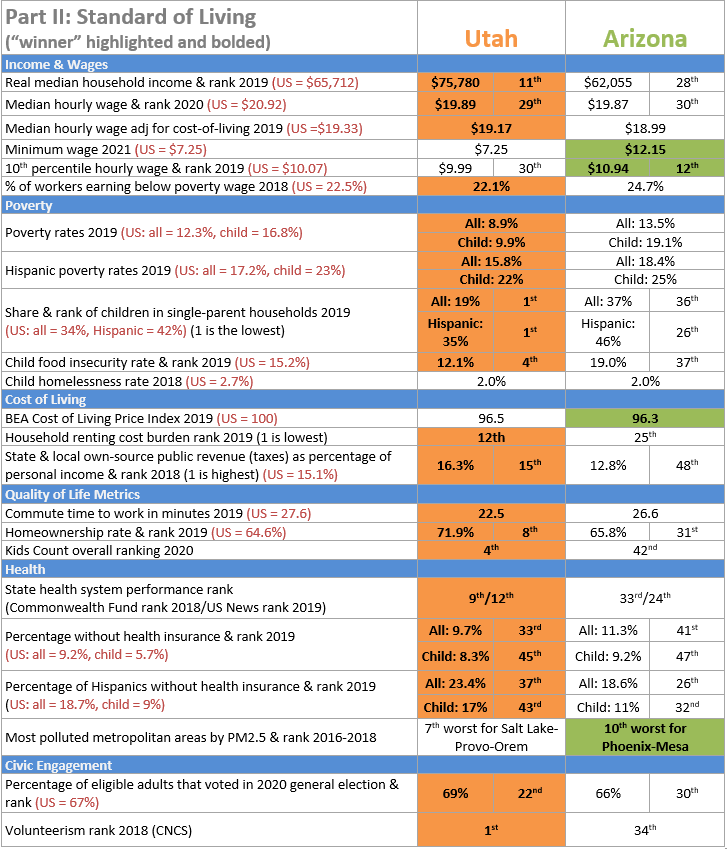
The full 56-page report is ![]() available here as a pdf download.
available here as a pdf download.
Policy Implications
Racial/Ethnic Gaps
Racial and ethnic gaps remain a major challenge in the nation overall, and Utah and Arizona are no exception. Disparities in Utah between minority racial & ethnic groups compared to their White non-Hispanic peers are evident in high school graduation rates, wages, gender pay gaps, poverty rates, and uninsured rates. Addressing these gaps through an upfront investment in education would likely increase educational attainment, wages, and standard of living overall and would therefore contribute to reducing racial and ethnic gaps in the future.
The Link Between Education and Income
The link between education and income is well-established. States with higher education levels generally have higher levels of worker productivity, wages, and incomes. In the current comparison with Arizona, Utah’s higher education levels make for higher levels of wages and income. The lesson for Arizona would be raise education levels to raise the state’s standard of living. The same applies to Utah, where the Legislature has struggled to turn seemingly large dollar increases in education funding every year into increases in real per-pupil investment sufficient to get Utah out of last place in the national ranking.
The latest data from the Census Bureau reports that Utah remains in last place in per-pupil education investment at $7,628, with Arizona only slightly better at $8,239 and 47th in the nation (for FY 2018). While Utah has done well for its meager investment levels, achieving impressive gains in educational performance as measured by NAEP 4th and 8th grade math and reading scores (see Figure 31, page 25), will we be able to continue to advance while remaining in last place?
While Utah “does more with less” in education compared to other states, we have growing challenges to address. Utah has racial/ethnic education gaps which are larger than the national average, for example for Hispanic and American Indian high school graduation rates (see Figure 33, page 26). Utah’s pupil-to-teacher ratio is 22.9, ranking 48th while the national average is 16 (see Figure 22, page 21). Moreover, Utah teacher pay has also fallen over the past 50 years by 1.8% while nationally teacher salaries have increased 6.7% (see figure 24, page 22).
At the college level, Utah historically was always ahead of the national average for attainment of bachelor’s degrees and above. But Census data show Utah’s lead shrinking relative to the nation with each successive generation, to the point now that Utah millennials (ages 25-34) are behind their peers nationally, despite relatively generous state support and low tuition levels.
Can Utah Become a High-Wage State?
For many years, economists have debated whether Utah is a low-wage state, as the Utah Foundation discussed in their 2008 report, “Is Utah Really a Low-Wage State?”[1] That report argued that our seemingly low wages were explained by our younger demographic profile and lower cost of living. While this report does not examine how wages intersect with age demographics, Utah ranks 29th in median hourly wages, compared to 41st in 2004 (see chart below). When adjusted for our low cost of living, Utah’s median hourly wage in 2019 was $19.17, just 16 cents lower than the national level. These data seem to demonstrate that Utah has gone from being a low-wage state a generation ago to middle-wage status today, a considerable accomplishment.

One question Utah leaders may now wish to consider is, is that good enough? Should we declare, “Mission Accomplished”? Or is Utah in a position, like Colorado and Minnesota before us, to become, over time, a high-wage state and set our sights on taking the necessary steps today to achieve that goal over the years and decades to come?
Similarly, how do we include those earning the lowest wages in the gains Utah has made and will potentially make in the future? Utah is not even a half percentage point lower than the national share of workers earning poverty level wages (see Figure 55, page 38) and lags behind the nation’s 10th percentile wage, ranking 30th (see Figure 54, page 37). Even as the state with the lowest income inequality ranking in the nation (see Figure 45, page 31), Utah suffers from a tremendous gap between low-income workers and the rest of the income scale.
The main lesson that emerges from the Working Families Benchmarking Project reports comparing Utah to Colorado, Minnesota, Idaho and now Arizona is the following: Higher levels of educational attainment translate into higher hourly wages, higher family incomes, and an overall higher standard of living. The challenge for policymakers is to determine the right combination of public investments in education, infrastructure, public health, and other critical needs that will enable Utah to continue our progress and achieve not just steady growth in the quantity of jobs, but also a rising standard of living that includes moderate- and lower-income working families from all of Utah’s increasingly diverse communities.
MEDIA COVERAGE OF THE BENCHMARKING PROJECT:
Facebook Live Event discussing the report overall joined by David Lujan, Director of Arizona Center for Economic Progress at Children's Action Alliance: https://fb.watch/68E_JarLMT/
Facebook Live Event focusing on women in higher education, the gender pay gap, and income equality with panelists: Dr. Susan Madsen, Founder and Director of the Utah Women & Leadership Project; Marshall Steinbaum Ph.D., Associate Professor at the University of Utah's department of Economics; and Gabriella Archuleta JPP MPP, Policy Analyst with YWCA Utah. https://fb.watch/68FoEVvGwY/
Facebook Live Event focusing on Utah's economic success and economic development strategy with panelists: Howard Stephenson MPA, former Utah Senator; Phil Dean MS MPA, public finance senior research fellow at the Gardner Institute; and Thomas Maloney PhD., Professor, Department of Economics, University of Utah. https://fb.watch/6r25O5rdDd/
Facebook Live Event focusing on education in Utah from pre-school to higher education, focusing on educational attainment & closing racial and ethnic gaps with panelists: Carrie Mayne, Chief Economist for Utah System of Higher Education; Andrea Rorrer PhD., Director of the University of Utah's Education Policy Center; and Anna Thomas MPA, Senior Policy Analyst at Voices for Utah Children. https://fb.watch/7iKYaR9Zy4/
The 2017 legislative session was remarkable for focusing more on tax policy than any session since 2007. This came in response to the November 29, 2016 announcement by Our Schools Now of their intention to pursue a campaign to place on the 2018 ballot an initiative to generate $750 million for public education through an increase in Utah’s income tax rate from 5% to 5.875%. In response, the Legislature engaged in a detailed and wide-ranging examination of several tax restructuring options. In that process several important lessons were learned:
LESSON #1: RESTORING REVENUES:
The Utah Legislature is unlikely to pass a tax reform package that is more than marginally or perhaps gradually revenue positive. While it appeared that the Senate was willing to support restoring some state revenues to address the current underinvestment in children, the House of Representatives was particularly averse to generating new revenues for the public investments that our state critically needs, despite strong evidence that Utah’s tax burden remains at a multi-decade low. This strengthens the argument for taking the question directly to voters through the initiative process.
LESSON #2: SALES TAX ON FOOD:
Restoring the sales tax on food is not only the most regressive of the options that were considered, it also fails to substantially reduce revenue volatility during recessions. Moreover, we also learned that restoring the sales tax on food while offsetting that with a lower overall sales tax rate involves a $40 million shift of sales tax burden from out-of-state to in-state taxpayers, since 97% of the food sales tax increase would have been paid by Utahns, while out-of-staters would have received 23% of the overall sales tax rate reduction.
LESSON #3: PROTECTING THE POOREST:
The legislative leadership was genuinely concerned about the impact that raising the food sales tax would have on the poor and made a sincere effort to find ways to achieve their goal of broadening the base without burdening low-income Utahns. Since we never saw a final proposal, we can’t evaluate it properly, but it was clear from the evolution of their ideas that House and Senate leaders were sensitive to the concerns of advocates for the poor such as Voices for Utah Children and our partners. They incorporated into their proposals some ideas from the research that we released at our coalition press conference on February 23 at the Capitol.
LESSON #4: OUR SCHOOLS NOW:
The Our Schools Now proposal to raise the income tax rate from 5% to 5.875% is the fairest to low-income Utahns of any of the leading tax reform proposals. Only 2% of its new revenues come from the lowest quintile of tax filers, those earning under $25,000, who could easily be shielded with an offsetting EITC. And 58% of the $750 million of new revenues comes from the highest quintile, those earning over $111,000. Indeed, that 58% share is approximately equal to the share of all Utah income earned by the top quintile of Utahns. But what about the cost to middle-income Utahns? Under the proposal, the median household pays about $350 more annually. If that family has two kids in the public schools, then their $350 upfront payment will reap a gain of over $2,000 in new investment in their own children – good luck trying to get a return like that in the stock market!
LESSON #5: EITC:
The Earned Income Tax Credit gained in popularity this year, winning 61 votes on the House floor (vs. 38 in 2014) and gaining Senate committee approval. But legislators appear unconvinced by the evidence presented by the American Enterprise Institute on Interim Day last September that, for low-income kids, investing in their family economic stability through an EITC brings greater educational gains than investing those same dollars in the classroom. Thus, it appears that the EITC’s best chance for approval is as part of a larger income tax reform package. Fortunately, legislative leaders have declared that such a package is already a goal for the 2018 legislative session.
LESSON #6: BUSINESS TAX CUTS:
Even though the Tax Review Commission declined to recommend them following months of study, the Legislature remains committed to gradually implementing two business tax reductions: Single Sales Factor corporate income tax apportionment and extending the sales tax exemption for manufacturing inputs to inputs lasting less than three years. While legislation to fully implement those two proposals was not passed, reduced versions applying those changes to more industries did pass, including a creative application of the sales tax exemption as an incentive to switch refineries over to producing cleaner Tier 3 fuels.
Photo Credit: Antoniodiaz | Dreamstime.com - Taking a test in high school
 March 30, 2017 is Love UT Give UT!
March 30, 2017 is Love UT Give UT!
It’s a day for Utahns to give to the nonprofits that make Utah special. Every donation to Voices for Utah Children through Love UT Give UT gives Voices a chance to win matching grants and prizes—and gives you a chance to win a car!
And you don't have to wait! Donate now at http://bit.ly/loveUTchildren.
For 30 years now, Voices for Utah Children has called on our state, federal and local leaders to put children’s needs first. But the work is not done. The children of 30 years ago now have children of their own. Too many of these children are growing up in poverty, without access to healthcare or quality educational opportunities.
How can you be involved?
Make a tax-deductible donation to Voices for Utah Children—or join our Network with a monthly donation of $20 or more. Network membership includes complimentary admission to Network events with food, socializing, and opportunity to meet child advocacy experts. And don't forget to join our listserv to stay informed!
We look forward to the future of Voices for Utah Children and we hope you will be a part of our next 30 years.
Special thanks to American Express for sponsoring our 30th Anniversary Year. 
Wins for Kids during the 2017 Utah Legislative Session
Early Childhood
Wins for new moms and babies including much-needed funding support for Early Intervention Services/Baby Watch (Sen. Luz Escamilla, D-Salt Lake City, SB 2) and SB 135 which will strengthen statewide, evidence-based home visiting programs for low-income mothers (Sen. Escamilla).
SB 100 (Sen. Ann Millner, R-Ogden) commissions an analysis of early childhood systems throughout the state, to determine where and to what extent early childhood services exist such as developmental screenings, home visiting, high-quality child care and preschool, as well as what access barriers there are between these services and the children and families who need them.
Access to Healthcare
A win for families is HB 278 (Rep. Chavez-Houck, D- Salt Lake City), which makes it easier for divorced parents to seek medical care for their children. It requires medical providers to separately bill each parent for their due portion, and prohibits a parent from getting a negative credit report if the other parent has not made his or her portion. The onus is no longer on the parent to track down the full payment or risk a bad credit score. HB 278 will help more kids get the care they need.
Sen. Christensen (R-Ogden) sponsored SB 51, which would return Medicaid managed care services to a fee for service model. Ultimately, this bill was decided outside of legislation, however, the agreement reached will help more children access a Medicaid pediatric dentist or school-based preventive dental care. To further monitor the issue, Sen. Escamilla (D-Salt Lake City) sponsored intent language that directs the Department of Health to investigate pediatric dental care access issues kids enrolled in Medicaid may experience (SB 2).
Immunization
Rep. Thurston’s (R- Provo) bill HB 308 which will strengthen protections for Utah students against disease outbreaks and standardize vaccination exemption requirements and procedures, creating an online education module for those seeking an exemption.
Suicide Prevention
Lawmakers took several key steps toward addressing bullying, student safety and teen suicide in Utah. Sen. Escamilla (D-Salt Lake City) sponsored SB 161, which strengthens school anti-bullying policies, and gives parents and school staff greater ability to address anti-bullying behavior.
Rep. Eliason (R-Sandy), who was also the floor sponsor for SB 161, sponsored HB 223 which establishes a suicide prevention education program, including firearm safety curriculum to be made available in schools.
A big win this session for Utah kids is the repeal of the so-called “No Promo Homo” in SB 196. Previously schools were not allowed to discuss homosexuality in the classroom and curricula. This harmful and discriminatory policy was repealed thanks to the efforts of Sen. Stuart Adams (R-Layton), champions at Equality Utah and others for create a safer, creating more inclusive environment for Utah kids.
Juvenile Justice
For the last year, the state policy makers have been grappling with how to make Utah’s juvenile justice system work better for kids and our community. With the help of the Pew Charitable Trusts, a workgroup made up of key stakeholders—judges, mental health providers, police officers, school officials, prosecutors, and juvenile defense attorneys—made a number of strong recommendations including:
- Keeping kids out of court for low-level status offenses like truancy.
- Bringing much-needed structure to the sentencing process in the juvenile justice system.
- Ensuring that kids don't spend time in detention just because they can't pay restitutions and fines.
- Creating specific performance requirements for community placement programs.
- Ensuring that children have their constitutionally guaranteed right to counsel.
HB 239, Juvenile Justice Amendments, sponsored by Rep. Lowry Snow (R-St. George), incorporated many of these recommendations and received near unanimous support this legislative session. The bill that finally will bring much-needed structure to juvenile sentencing, and require important training for system workers. However, the legislature failed to provide sufficient funding to ensure kids have access to community-based and school-based interventions that offer more opportunities for positive change and that Utah is meeting its constitutional obligation that kids have legal representation.
The passage of SB 134, Indigent Defense Commission Amendments, sponsored by Sen. Todd Weiler (R-Salt Lake), may provide a forum to address the lack of legal representation for kids involved in juvenile justice system by expanding Utah’s Indigent Defense Commission’s mission to include looking at how Utah will protect children’s Sixth Amendment rights, not just adults.
Public Education
For decades Utah has languished at the bottom in terms of state investment in our kids. While big reforms inspired by the Our Schools Now initiative did not make it through in 2017 (The Our Schools Now ballot initiative, however, remains very much alive), the legislature did take a number of positive steps.
As a result of higher-than-expected revenue projections, the Public Education Appropriations Subcommittee recommended a 3 percent increase to the value of the weighted pupil unit (WPU) — the basic unit of education funding — as well as $68 million for new growth in the state’s public education system.
HB 168 (Rep. Lowry Snow, R-St. George) appropriates just under $3 million in TANF funds to help schools establish kindergarten supplemental enrichment programs (extended-day kindergarten). Schools with at least 10 percent of their students experiencing intergenerational poverty will receive first priority for funding, followed by schools in which 50 percent of students are eligible for free or reduced-price lunch. The bill also directs the State Board of Education to develop kindergarten entry and exit assessments to be used in conjunction with these programs.
HB 212 (Rep. Mike Winder, R-West Valley) provides bonuses for teachers working in high-poverty schools who have a 70 percent median growth percentile or higher (as determined by SAGE scores). The state and the school district will each provide half of the bonus funds. While there are concerns about the limitations imposed as a result of using SAGE scores as the sole determinant, it is nonetheless a good step toward incentivizing highly effective educators who work in high-need schools. The bill passed the Senate unanimously and now goes to the Governor.
SB 34 (Sen. Ann Millner, R-Ogden) authorizes the State Board of Education to reimburse a local education agency that provides competency-based education for a student who graduates early. In the past, school districts and LEAs lost the remaining per-pupil funding each time a student graduated before the end of their senior year. The bill passed the House unanimously and now goes to Governor Herbert.
 March 30, 2017 is Love UT Give UT!
March 30, 2017 is Love UT Give UT!
It’s a day for Utahns to give to the nonprofits that make Utah special. Every donation to Voices for Utah Children through Love UT Give UT gives Voices a chance to win matching grants and prizes—and gives you a chance to win a car!
And you don't have to wait! Donate now at http://bit.ly/loveUTchildren.
For 30 years now, Voices for Utah Children has called on our state, federal and local leaders to put children’s needs first. But the work is not done. The children of 30 years ago now have children of their own. Too many of these children are growing up in poverty, without access to healthcare or quality educational opportunities.
How can you be involved?
Make a tax-deductible donation to Voices for Utah Children—or join our Network with a monthly donation of $20 or more. Network membership includes complimentary admission to Network events with food, socializing, and opportunity to meet child advocacy experts. And don't forget to join our listserv to stay informed!
We look forward to the future of Voices for Utah Children and we hope you will be a part of our next 30 years.
Special thanks to American Express for sponsoring our 30th Anniversary Year. 
It’s time to start preparing for the 2060 Presidential election. No, I’m serious. Today, somewhere in Utah, there are children who could run for President of the United States in 2060 and beyond.
I hope they are nurtured by parents who are economically secure and prepared to parent to the best of their ability. I hope they have stable, affordable, effective health care and have health insurance so they don’t worry about whether they can access care. I hope they have access to quality preschool if they need it so they are ready to learn when they start kindergarten. I hope they are taught by teachers who are valued; who are paid a wage that recognizes the important, valuable influence they have on a child’s intellect and ability to succeed. I hope they live in a community that supports them throughout their lives, that makes sure that all children in the community have what they need to succeed, not just those living in certain zip codes. I hope they live in communities that recognize that care for our environment means healthier, happier kids. And I hope they live in a society that values all life, all nationalities, all humanity. Because that kid could be the hero we need to bring a nation together.
Unfortunately, many kids don’t live this life in Utah today. As Diposh Navsaria said “We fail kids, long before they fail us.” Too many live below poverty in our state, 120,155 to be exact. If you want a visualization, that’s enough kids to fill the Huntsman Center, Vivint Smart Home Arena, Smiths Ballpark, Rice-Eccles Stadium, the Maverick Center, and the Dee Events Center at one time. And we don’t always provide these at-risk kids with the support they need.
All-day kindergarten is not available to all kids; quality, affordable preschool is not available to all kids; we have the lowest per pupil expenditures in the nation in a state where student population increases every year; we have one of the highest rates of uninsured kids in the nation, and we do have the highest rate of uninsured Hispanic kids.
Nationally, we continually fight to keep food stamps from being cut, we worry about cuts to the Children’s Health Insurance Program, we wonder if families will be torn apart in the same breath that we say how much we value families. And everywhere, across this nation and in Utah, sometimes your zip code determines if you succeed or fail. When will be learn that when our children succeed, our city, community, nation, and society succeed.
When will we understand that supporting children and families IS economic development. Because when we support our children, when we raise capable, loving, experienced children they become the bedrock and the foundation, of a successful society.
At Voices for Utah Children we always ask the question, “Is it Good for Kids?” when working on policies affecting children and families. We collect data, we do research, and we share information with experts across the United States. I want to be able to say that the future President of the United States from the great state of Utah could be any child in the state, not just the lucky ones born to the right parents, born in an affluent neighborhood, and born with the best chance of success. When asked “Is it good for the 2060 candidate for President”, I want our state to be able to say “yes, we did the best we could for all our children.” All our children had the opportunity to succeed. Hail to the future Chief!
 March 30, 2017 is Love UT Give UT!
March 30, 2017 is Love UT Give UT!
It’s a day for Utahns to give to the nonprofits that make Utah special. Every donation to Voices for Utah Children through Love UT Give UT gives Voices a chance to win matching grants and prizes—and gives you a chance to win a car!
And you don't have to wait! Donate now at http://bit.ly/loveUTchildren.
For 30 years now, Voices for Utah Children has called on our state, federal and local leaders to put children’s needs first. But the work is not done. The children of 30 years ago now have children of their own. Too many of these children are growing up in poverty, without access to healthcare or quality educational opportunities.
How can you be involved?
Make a tax-deductible donation to Voices for Utah Children—or join our Network with a monthly donation of $20 or more. Network membership includes complimentary admission to Network events with food, socializing, and opportunity to meet child advocacy experts. And don't forget to join our listserv to stay informed!
We look forward to the future of Voices for Utah Children and we hope you will be a part of our next 30 years.
Special thanks to American Express for sponsoring our 30th Anniversary Year. 
Utah Tax Reform Proposals: Who Wins and Who Loses?
Tax cuts over the past decade have reduced Utah tax rates—and revenues—to a multi-decade low. As a result, the state budget is failing to meet urgent priorities, such as lifting Utah out of last place for per pupil K-12 education funding. Today, social service providers and advocates for Utah’s most vulnerable populations announced the results of their analysis of the five major tax reform proposals that have been discussed during the 2017 Utah Legislative Session.
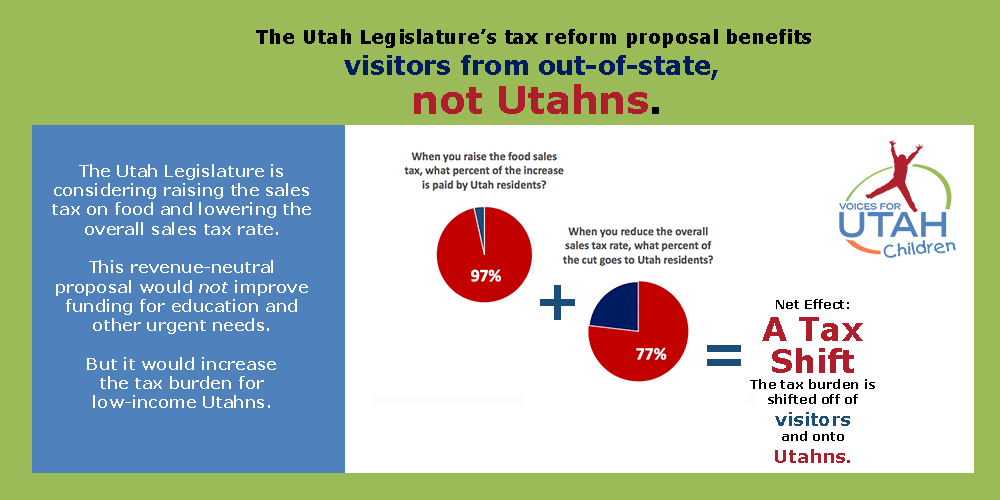 Recently, Utah legislative leadership announced a revenue-neutral proposal to restore the full sales tax on food and reduce the overall sales tax rates. Utah residents are losers under this scenario because 97% of the sales tax increase on food is borne by Utah residents while only 77% of the rate reduction benefits Utah residents. This proposal shifts the tax burden away from out-of-state visitors and replaces their contributions with revenue generated from Utah residents. Moreover, because it is revenue-neutral, it does not restore the revenue needed to address Utah’s urgent needs.
Recently, Utah legislative leadership announced a revenue-neutral proposal to restore the full sales tax on food and reduce the overall sales tax rates. Utah residents are losers under this scenario because 97% of the sales tax increase on food is borne by Utah residents while only 77% of the rate reduction benefits Utah residents. This proposal shifts the tax burden away from out-of-state visitors and replaces their contributions with revenue generated from Utah residents. Moreover, because it is revenue-neutral, it does not restore the revenue needed to address Utah’s urgent needs.
Proposals to raise the sales tax on food or the gasoline tax disproportionately shift the tax burden to Utah’s low-income populations. Utah’s middle class is also disproportionately affected by food and gas taxes, as well as by proposals to eliminate personal exemptions.
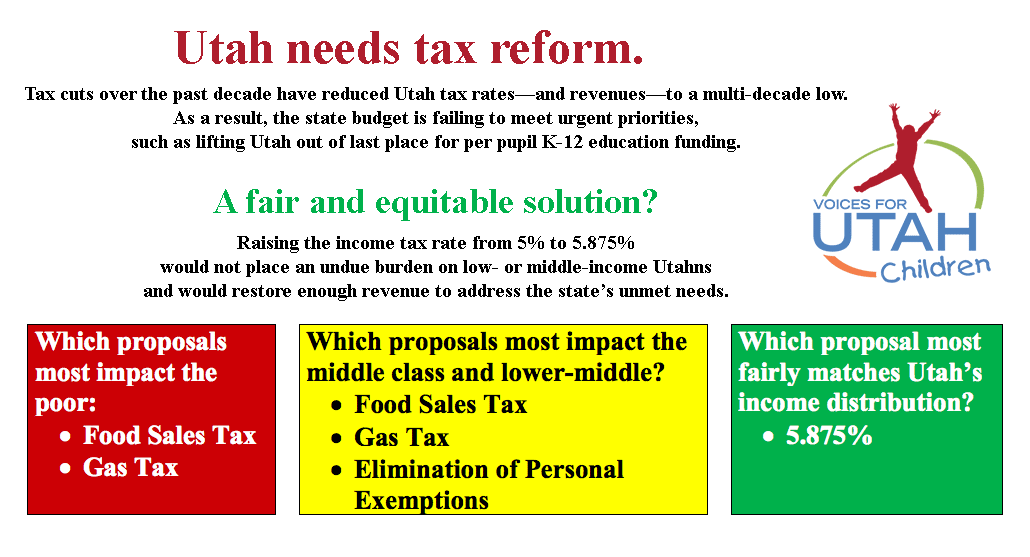 The fairest and most equitable proposal has been suggested by the advocacy group, Our Schools Now. They propose raising the income tax rate from 5% to 5.875%. This proposal does not place an undue burden on low-income or middle income Utahns and would restore enough revenue to address the state’s unmet needs.
The fairest and most equitable proposal has been suggested by the advocacy group, Our Schools Now. They propose raising the income tax rate from 5% to 5.875%. This proposal does not place an undue burden on low-income or middle income Utahns and would restore enough revenue to address the state’s unmet needs.
The social service providers and advocates have written an open letter to Utah lawmakers expressing their hope that legislators will consider the needs of vulnerable populations as they grapple with this difficult challenge. The letter is available here:
Open Letter to the Utah Legislature: Tax Reform and Utah’s Most Vulnerable Populations
The analysis is summarized in these two posters:
![]() Comparing the Leading 2017 Revenue Proposals
Comparing the Leading 2017 Revenue Proposals
Image Credit: Amanda Mills, Centers for Disease Control and Prevention
For 30 years now, Voices for Utah Children has called on our state, federal and local leaders to put children’s needs first. But the work is not done. The children of 30 years ago now have children of their own. Too many of these children are growing up in poverty, without access to healthcare or quality educational opportunities.
How can you be involved?
Make a tax-deductible donation to Voices for Utah Children—or join our Network with a monthly donation of $20 or more. Network membership includes complimentary admission to Network events with food, socializing, and opportunity to meet child advocacy experts. And don't forget to join our listserv to stay informed!
We look forward to the future of Voices for Utah Children and we hope you will be a part of our next 30 years.
Special thanks to American Express, our "Making a Difference All Year Long" sponsor. 
2019 Utah Legislative Bill Tracker
Bill |
Sponsor |
Description |
Voices is |
House Bills |
|||
|
HB011 Property Tax Amendments |
Rep. Timothy Hawkes Sen. Daniel Hemmert |
This bill modifies the property tax valuation and appeals processes for county assessed real property. |
Following |
| HB017 Firearm Violence and Suicide Prevention Amendments |
Rep. Steve Eliason Sen. Curtis Bramble |
This bill reenacts and modifies previously sunsetted provisions relating to a voluntary firearm safety program and a suicide prevention education course. | Following |
|
HB024 Property Tax Exemptions, Deferrals, and Abatements Amendments |
Rep. Steve Eliason Sen. Daniel McCay |
This bill amends provisions related to property tax exemptions, deferrals, and abatements. |
Following |
|
HB025 Tax Commission Amendments |
Rep. Steve Eliason Sen. Lincoln Fillmore |
This bill modifies provisions relating to closed meetings held by the State Tax Commission. |
Following |
|
HB041 Transportation Sales Tax Amendments |
Rep. Kay Christofferson |
This bill modifies sales and use tax provisions relating to certain sales and use tax dedications. |
Following |
|
HB042 Utah Net Loss Effective Date Clarification |
Rep. Travis Seegmiller Sen. Curtis Bramble |
This bill modifies an uncodified effective date. |
Following |
|
HB047 Early Childhood Coordination Amendments |
Rep. V. Lowery Snow; Sen. Ann Millner |
This bill creates the Early Childhood Utah Advisory Council and the Governor's Early Childhood Commission. |
Priority Supporting |
|
HB049 Repatriation Transition Tax Amendments |
Rep. Steve Eliason Sen. Lincoln Fillmore |
This bill modifies corporate income tax provisions relating to deferred foreign income. |
Following |
|
HB071 Health Education Amendments |
Rep. Ray Ward Sen. Todd Weiler |
This bill amends provisions regarding instruction in health. |
Supporting |
|
HB087 Safe Storage of Firearms Amendments |
Rep. Elizabeth Weight |
This bill relates to firearm storage. |
Supporting |
| HB092 Violence Data Study |
Rep. Susan Pulsipher |
This bill establishes a grant award for a violence data study. | Following |
|
HB102 Campaign Funds Uses Amendments |
Rep. Stephanie Pitcher |
This bill allows candidates for public office to use campaign funds to pay for child care expenses incurred as part of campaign activities. |
Supporting |
|
HB103 Utah Intergenerational Poverty Work & Self-sufficiency Tax Credit. |
Rep. Robert Spendlove |
This bill enacts a state earned income tax credit. |
Priority Supporting |
|
HB120 Student and School Safety Assessment |
Rep. Ray Ward Sen. Ann Millner |
This bill enacts provisions related to school safety. |
Following |
|
HB129 Campaign Amendments |
Rep. Craig Hall Sen. Deidre Henderson |
This bill allows candidates for public office to use campaign funds to pay for child care expenses incurred as part of campaign activities. |
Supporting |
| HB153 Utah Vital Statistics Act Amendments |
Rep. Merrill Nelson Sen.Ralph Okerlund |
This bill amends provisions regarding the completion and amendment of a birth certificate. | Following |
| HB205 Railroad Crossing Amendments |
Rep. Joel Ferry |
This bill amends provisions related to the operation of a train that blocks traffic at a railroad crossing in a high-traffic area. |
Following |
| HB208 Safe Routes to School Program |
Rep. Suzanne Harrison Sen. Daniel Hemmert |
This bill requires the Department of Transportation to implement a program to provide safe routes to school. |
Supporting |
| HB209 Extreme Risk Protective Order |
Rep. Stephen Handy |
This bill creates the Extreme Risk Protective Order Act. |
Supporting |
|
HB210 Medicaid Expansion Program Revisions |
Rep. Ray Ward |
This bill amends provisions relating to Medicaid expansion. |
Priority Supporting |
|
HB234 Marriage Amendments |
Rep. Angela Romero Sen. Luz Escamilla |
This bill imposes an age, below which an individual may not marry and makes technical and conforming amendments. | Following |
| HB244 Misdemeanor Sentencing Timeline Clarifications |
Rep. Eric Hutchings Sen. Daniel Thatcher |
This bill reduces the maximum penalty for a misdemeanor conviction by one day to 364. |
Supporting |
| HB267 Prescription Drug Importation Program |
Rep. Norman Thurston Sen. Curtis Bramble |
This bill creates a program and reporting requirements relating to prescription drugs and the importation of prescription drugs. |
Supporting |
| HB274 Retail Tobacco Specialty Business Amendments |
Rep. Jennifer Dailey-Provost |
This bill amends provisions relating to the sale of flavored tobacco products. |
Supporting |
| HB275 Contraception for Women Prisoners |
Rep. Jennifer Dailey-Provost |
This bill requires that jails must continue to allow female prisoners access to contraceptives. | Following |
|
HB286 Financial and Economic Literacy Education Amendments |
Rep. Jefferson Moss Sen. Todd Weiler |
This bill amends provisions related to financial and economic literacy education. | Following |
| HB303 School Community Council Amendments |
Rep. Keven Stratton |
This bill modifies provisions related to the School LAND Trust Program. |
Following |
| HB317 Homeless Resource Center Drug-free Zone |
Rep. Steve Eliason |
This bill modifies provisions related to penalties for certain prohibited acts. | Following |
| HB324 Tobacco Age Amendments |
Rep. Steve Eliason Sen. Curtis Bramble |
This bill modifies the minimum age for obtaining, possessing, using, providing, or furnishing of tobacco products, paraphernalia, and under certain circumstances, electronic smoking devices from 19 to 20 then to 21 years of age. |
Supporting |
| HB333 Workforce Development Incentives Amendments |
Rep. Suzanne Harrison Sen. Jacob Anderegg |
This bill amends provisions related to tax credit incentives for economic development. |
Supporting |
| HB336 Nurse Practice Act Amendments |
Rep. James Dunnigan Sen. Curtis Bramble |
This bill amends provisions relating to the prescriptive authority of certain licensed nurse practitioners. |
Supporting |
| HB340 School Absenteeism and Truancy Amendments |
Rep. V. Lowry Snow |
This bill amends provisions related to truancy. |
Supporting |
| HB344 Student Asthma Relief Amendments |
Rep. Mark Wheatley Sen. Ronald Winterton |
This bill enacts provisions governing the administration of stock albuterol by certain entities to an individual. |
Supporting |
| HB360 School Water Testing Requirements |
Rep. Stephen Handy |
This bill enacts provisions related to monitoring and mitigating lead in drinking water in schools and child care centers. |
Supporting |
| HB371 Consent to Services for Homeless Youth |
Rep. Elizabeth Weight |
This bill relates to a homeless youth's ability to consent to a temporary shelter, care, or services. |
Supporting |
| HB373 Student Support Amendments |
Rep. Steve Eliason Sen. Ann Millner |
This bill repeals and enacts provisions related to school-based mental health support. |
Supporting |
| HB379 Intergenerational Poverty Solution |
Rep. Norman Thurston |
This bill creates the Earned Income and Education Savings Incentive Program. | Following |
| HB399 Prohibition of the Practice of Conversion Therapy upon Minors |
Rep. Craig Hall |
This bill prohibits certain health care professionals from providing conversion therapy to a minor; and adds a violation of the prohibition to the list of conduct that constitutes unprofessional conduct for licensing purposes. |
Followed- Bill was pulled |
| HB430 Prohibition of Genital Mutilation |
Rep. Ken Ivory |
This bill prohibits female genital mutilation and provides a penalty. | Following |
| HB441 Tax Equalization and Reduction Act |
Rep. Tim Quinn |
This bill modifies the sales tax rate by attempting to broaden the tax base and lowering the income tax from 4.9% to 4.7% |
Monitored - Bill was pulled. |
|
HR003 House Resolution Supporting Humane Response to Refugee Crisis |
Rep. Jen Dailey-Provost |
This House resolution urges a humane response to the immigration crisis at the U.S.-Mexico border. |
Supporting |
|
HCR004 Concurrent Resolution Supporting Utah's Every Kid Outdoors Initiative |
Rep. Patrice Arent Sen. Lincoln Fillmore |
This concurrent resolution expresses support for Utah's Every Kid Outdoors Initiative. |
Supporting |
| HCR005 Concurrent Resolution Urging Policies That Reduce Damage from Wildfires |
Rep. Raymond Ward Sen. Ronald Winterton |
This resolution urges the federal government to pursue policies that allow for easier reduction of excess forest fuel loads. |
Supporting |
| HJR008 Proposal to Amend Utah Constitution - Slavery and Involuntary Servitude Prohibition |
Rep. Sandra Hollins Sen. Jacob Anderegg |
This joint resolution of the Legislature proposes to amend the Utah Constitution to modify a provision prohibiting slavery and involuntary servitude. |
Supporting |
Senate Bills |
|||
|
SB012 FDIC Premium Deduction Amendments |
Sen. Jerry Stevenson Rep. Tim Quinn |
This bill modifies the Corporate Franchise and Income Taxes code and the Individual Income Tax Act by amending provisions relating to certain subtractions from unadjusted income or adjusted gross income. |
Following |
|
SB013 Income Tax Domicile Amendments |
Sen. Curtis Bramble Rep. Steve Eliason |
This bill modifies tax provisions relating to income tax domicile requirements. |
Following |
|
SB028 Income Tax Revisions |
Sen. Curtis Bramble Rep. Steve Eliason |
This bill modifies corporate income tax provisions. |
Following |
|
SB032 Indigent Defense Act Amendments |
Sen. Todd Weiler Rep. Michael McKell |
This bill amends provisions of Utah’s Indigent Defense Act to ensure appropriate legal representation for all young people appearing in juvenile court. |
Priority Supporting |
| SB038 Substitute Mental Health Amendments |
Sen. Lincoln Fillmore Rep. Brad Daw |
This bill amends provisions of the civil commitment code and the definition of "unprofessional conduct" applied to mental health professionals. |
Following |
|
SB041 Interest Deductions Amendments |
Sen. Daniel McCay |
This bill modifies the Corporate and Franchise Income Tax Act and the Individual Income Tax Act by amending provisions relating to additions and deductions for certain business interest. |
Following |
|
SB042 Tangible Personal Property Amendments |
Sen. Daniel McCay Rep. Karianne Lisonbee |
This bill provides for the exemption of certain tangible personal property from property tax if the tangible personal property is eligible for sales and use taxation. |
Following |
| SB083 Partnerships for Healthy Communities |
Sen. Ann Millner Rep. Paul Ray |
This bill creates the Partnerships for Healthy Communities Grant Program and will address the social determinants of health that affect early childhood health outcomes. |
Priority Supporting |
|
SB096 Medicaid Expansion Adjustments |
Sen. Allen Christensen Rep. James Dunnigan |
This bill amends provisions relating to the state Medicaid program and the state sales |
Opposing |
|
SB097 Medicaid Program Revisions |
Sen. Jacob Anderegg |
This bill repeals the expansion of the state Medicaid program under the Affordable Care Act and changes the sales tax rate. |
Opposing |
| SB103 Victim Targeting Penalty Enhancements |
Sen. Daniel Thatcher Rep. Lee Perry |
This bill enacts provisions relating to sentencing for a criminal offense committed against a victim who is selected because of certain personal attributes. | Following |
| SB106 Mental Health Services in Schools |
Sen. Lincoln Fillmore Rep. Susan Pulsipher |
This bill enacts provisions relating to coverage of certain mental health services by the Medicaid program and certain health insurers. |
Following |
|
SB110 Family Medical Unpaid Leave Amendments |
Sen. Daniel Hemmert Rep. Mike Schultz |
Provides state-eligible companies (those that have between 30 and 50 employees) to make available three weeks of unpaid medical leave to employees. |
Supporting |
| SB143 Public Education Vision Screening |
Sen. Luz Escamilla Rep. Brad Daw |
This bill modifies provisions regarding public education vision screening. |
Supporting |
| SB166 School Readiness Amendments |
Sen. Ann Millner Rep. Bradley Last |
This bill amends and enacts preschool provisions. |
Priority Supporting |
| SB222 Children's Outdoor Recreation Program |
Sen. Lincoln Fillmore Rep. Mike Winder |
This bill creates the Utah Children's Outdoor Recreation and Education Grant Program in the Governor's Office of Economic Development. |
Supporting |
|
SJR003 Proposal to Amend Utah Constitution - Tangible Personal Property Tax Exemption |
Sen. Daniel McCay |
This joint resolution of the Legislature proposes to amend the Utah Constitution to modify a provision relating to tangible personal property tax exemptions. |
Following |
2020 Utah Legislative Bill Tracker
|
Bill |
Sponsor |
Description |
Voices is |
House Bills |
|||
|
Juvenile Justice Bills |
|||
|
Rep. Snow |
Creates a standard definition for “truancy” and chronic truancy” and seeks to improve data reporting by schools to the state board of education |
Following |
|
|
Rep. Dailey-Provost |
Prevents the state from sending fees related to juvenile incarceration to debt collection |
Support |
|
|
Rep. Hall |
Requires law enforcement to notify a school when a student is under investigation for a violent felony or weapons offense, |
Following |
|
|
HB171 - School Threat Amendments |
Rep. Stoddard |
Defines the crime of threatening a school (or committing an intentional hoax threat), creates certain criminal penalties (including restitution for the costs of a school response to a threat), and requires a mental health assessment. |
Following |
|
Rep. Handy |
Enables a family member or law enforcement to ask a court to restrain a person from possessing any firearms or ammunition for a specified length of time; |
Support | |
|
Child Care and Early Education |
|||
|
Rep. Harrison |
Allows GOED to consider the “working parent benefits” that a company offers, when calculating potential incentives packages |
Support |
|
|
Rep. Arent |
Updates Utah’s “Safe Haven Law” to allow parents to leave newborn children, up to 30 days old, at a hospital, safely and without fear of criminal prosecution. Also includes provisions to ensure notification of fathers when possible, and to prevent birth record duplications |
Support |
|
|
Rep. Snow |
Expands state-funded Optional-Extended Day Kindergarten administered by Utah State Board of Education. Boosts current spending about 2.5 times |
Support |
|
|
Rep. Waldrip |
Expands teacher professional development program focused on early literacy to include numeracy skills and to boost embedded coaching/technical assistance support to educators. |
Support |
|
|
HB153 - Parental Leave Amendments |
Rep. Weight |
Directs state agencies (except for universities) to offer up to sic weeks of paid parental leave for the birth or adoption of a child |
Support |
|
Rep. Harrison |
Creates a non-refundable tax credit for employers who offer financial support for their employee’s child care expenses |
Support |
|
| HB264 - Infant at Work Pilot Program | Rep. Pitcher |
This bill establishes the Infant at Work Pilot Program for eligible employees of the Department of Health. |
Support |
Health |
|||
|
Rep. Johnson |
Broadens the use of school lunch revenues to include school meals and will strengthen evaluation among schools participating in meal programs. |
Support |
|
|
HB34 – Tanning for Minors |
Rep. Daw |
This bill prohibits minors from tanning without parental consent. Youth tanning increases health risks for youth, including cancer |
Support |
|
Rep. Pulsipher |
Allows school administrators and educators to take certain steps to combat vaping misconduct at public schools, including a comprehensive health curriculum section and promoting positive alternatives. |
Following |
|
|
Rep. Arent |
Directs employers that offer their employees paid sick leave, to allow those employees to use at least five paid sick days to care for an immediate family member who is ailing |
Support |
|
|
HB88 - School and Child Care Center Water Testing Requirements |
Rep. Handy |
Direct schools and child care centers to test water for lead and connects centers and schools with remediation support resources. Let’s keep our kids hydrated and healthy! |
Support |
| HB108 - Medical Specialists in Public Schools | Rep. Spackman Moss | We support efforts that may lead to greater access to school-based health services. This bill seeks to clarify and offer greater guidance for schools regarding the pay schedule they can use for school-based health staff. | Support |
| HB118 – Retail Tobacco Amendments | Rep. Daily-Provost |
This bill will limit which types of stores can sell flavored tobacco or vaping products. These products are often used to target and appeal to youth. In addition, this bill will give cities greater authority to curb underage vaping. |
Support |
| HB204 – Insurance Coverage for in Vitro Fertilization | Rep. Stoddard | Will require a health benefit plan to cover in vitro fertilization if it provides a maternity benefit | Support |
|
Rep. Ward |
The number of uninsured kids in Utah has increased over the last two years. This bill would address this problem, by implementing 12-month continuous coverage for children on Medicaid and make it easier for eligible kids to get covered and stay covered. |
Support |
|
| HB222 - Start Smart Utah Breakfast Program | Rep. Johnson |
Will help more kids get breakfast at school. When kids aren't hungry, they are better learners! |
Support |
| B313 - Telehealth Parity Amendments | Rep. Ballard |
This bill will allow for coverage parity between telehealth and in-person visits. It will help more individuals in rural and underserved areas to receive care. |
Support |
| HB323 - School Mental Health Amendments | Rep. Eliason |
Will establish a grant program for schools to conduct age-appropriate mental health screenings for students and then connect high-risk students with care. Optional grant program for schools, specifically aimed to help identify children before they are in a life-threatening crisis. |
Support |
|
HB372 - Digital Wellness, Citizenship, and Safe Technology Commission |
Rep. Keven Stratton | This bill would create the Digital Wellness, Citizenship, and Safe Technology Commission and requires the commission to: identify best practices and compile resources for training students in healthy behavior related to technology use; and report to the Education Interim Committee and the State Board of Education on efforts related to delivering training in healthy behavior related to technology use | Support |
Tax and Budget Bills |
|||
Senate Bills |
|||
Health |
|||
|
Sen. Iwamoto |
Encourages more children to get lead screening so we can make sure kids are getting connected with the care and follow-up treatment they need. |
Support |
|
| SB74 - Family Planning Services Amendments | Sen. Kitchen |
This bill will help more low-income individuals access family planning health care services. |
Support |
| SB135 - Dental Practice Act Amendments | Sen. Christensen |
We support this bill because it advances teledentistry efforts and rules in Utah. Teledentistry is a promising practice that has the potential to help more people access dental care in rural and underserved areas. |
Support |
| SB155 - Medical Billing Amendments | Sen. Mayne |
Directs the Department of Insurance and insurers to report on the practice of balance billing or so-called “surprise” medical billing. |
Support |
Tax and Budget |
|||
|
Sen Fillmore |
This bill modifies provisions related to payment of income tax on global intangible low-taxed income. |
Oppose |
|
SB39 -Affordable Housing Amendments |
Sen Anderegg |
This bill modifies the allowable uses for a community reinvestment agency's housing allocation and modifies the requirements for distributing money from the Olene Walker Housing Loan Fund; |
Support |
2018 Utah Legislative Session
The 2018 Utah Legislative Session will take place from January 22 to March 8, with 45 days chock full of long committee meetings, urgent Action Alerts, conversations between community members and legislators, demonstrations on the steps of the State Capitol Building and much more!
We'll be following a lot of different bills during the 2018 session, not all of which will be made public before the session officially begins. Some bills are introduced with language that we support, and then that language changes over the course of the legislative process. Occasionally, the changes are subtantial enough to warrant a change in our position. We will do our best to keep this list of bills - as well as our positions - updated for your information, but it can be tricky when things are so busy for our staff during this crazy time of year.
We are working on several bills that will be priorities for us in 2018. You can learn more about these priority legislative proposals by clicking on the topic links below.
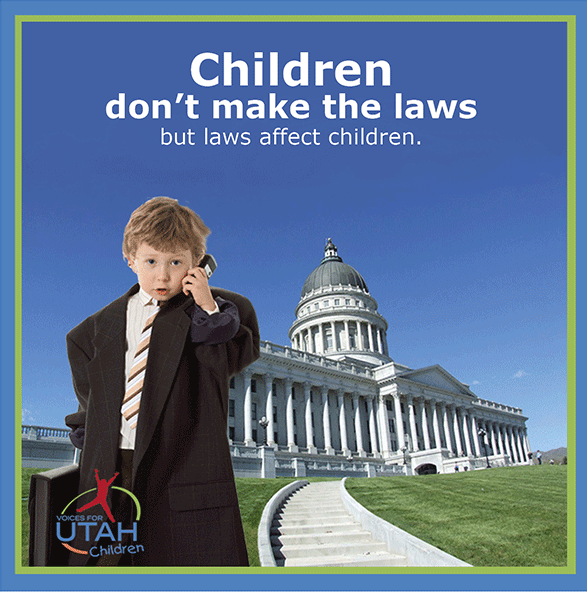 Tax and Budget Issues
Tax and Budget Issues
Creating a State Earned Income Tax Credit (EITC)
Restoring Investment in Children
Health Issues
12-Month Continuous Eligibility for Utah Kids with Medicaid
Early Childhood Care & Education Issues
High Quality Child Care
Governance and Coordination of Early Childcare Services
Juvenile Justice Issues
Implementing Juvenile Justice Reform
Bills
News Contact Lawmakers Sign Up for E-AlertsFollow @utchildren
For 30 years now, Voices for Utah Children has called on our state, federal and local leaders to put children’s needs first. But the work is not done. The children of 30 years ago now have children of their own. Too many of these children are growing up in poverty, without access to healthcare or quality educational opportunities.
How can you be involved?
Make a tax-deductible donation to Voices for Utah Children—or join our Network with a monthly donation of $20 or more. Network membership includes complimentary admission to Network events with food, socializing, and opportunity to meet child advocacy experts. And don't forget to join our listserv to stay informed!
We look forward to the future of Voices for Utah Children and we hope you will be a part of our next 30 years.

